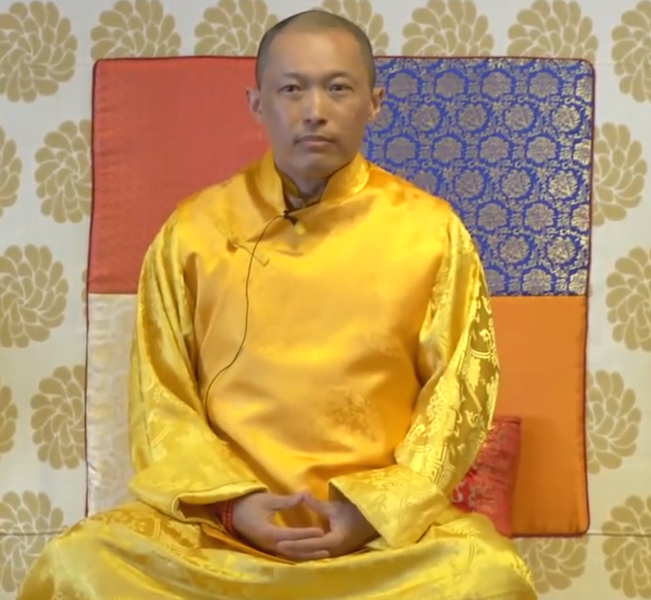Sometimes when trying to meditate one struggles and finds it difficult to continuously place mindfulness on the breath.
If after really putting in effort to follow the mind training instructions, one occasionally feels more bollixed up and stuck in small mind, one can abruptly short-circuit that struggle by just letting mind relax. Ah! Whew!
Relaxation in meditation is letting one’s mind go while still maintaining an uplifted posture.
When you really let go, complications dissolve into space—at least for a moment. At the very least this gives you a fresh start. Just letting go of any sense of project and allowing the mind and gaze to expand often provides a glimpse of unconditional mind.
But this is not to say skip the effort to apply the meditation instructions altogether because it is actually the combination of that initial effort followed by the contrasting relaxation that provides this experience of non-thought or gap.
If one just begins with complete relaxation, chances are one will just space out, allowing the mind to do its usual discursive wandering. And if you relax with the hidden agenda of looking for mind essence, you won’t find it, for it has become another project, a goal.
All goals are future oriented and involve rigging a situation, contriving to make something happen. The point of relaxation in meditation is to let go, to just be, giving up all projects.
Relaxation is opening to the basic, present, wakeful mind we already have, uncovering it through meditation practice. From this basic, already present, wakeful mind, self-existing wisdom arises. This wisdom is different than being smart, clever, witty or sharp. It is not speedy or manipulative. It is a seeing wisdom. It is awareness.
The more one practices authentic mindfulness, awareness will dawn as one relaxes. The initial mindfulness is always worth the effort, for it slows the usual mind chatter by placing the attention on the breath. One begins to ride the breath rather than be saddled with a wild or drowsy wandering mind. This takes effort and practice.
Noticing thoughts and returning again and again to the breath is part of the practice. When boredom occurs, this is actually a good sign that the mind is slowing down to be in sync with the breathing body. This also often marks a gradual form of relaxing, letting go into awareness.
One can trust this awareness. This awareness is the spacious mind that self-liberates fixations. It is the mind of relaxing into greater space.
Love elephant and want to go steady?
Sign up for our (curated) daily and weekly newsletters!
~
Editor: Travis May
Photo: YouTube Still



Read 2 comments and reply